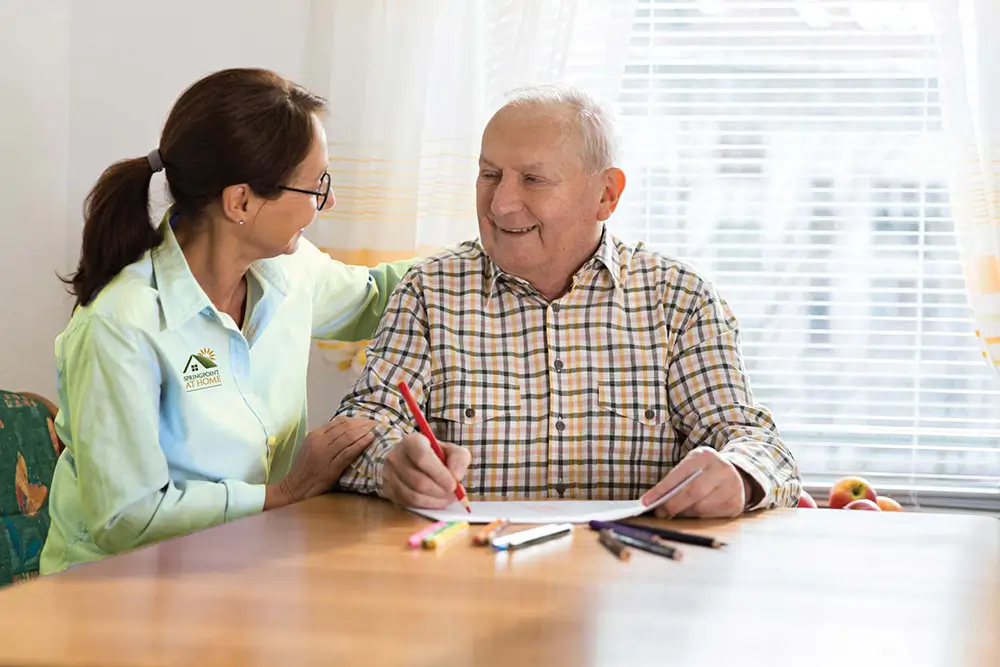
Healthy Living
January is Get Organized Month and it is a great reminder that once a year, spending time getting organized can help reduce stress.
Stress relief is just one health benefit of being organized. When we don’t have to search for important paperwork or a favorite hat, it saves time. Organizing clutter, especially in the bedroom, can help you sleep better. In general, being organized allows for a healthier lifestyle and increased time for yourself, two very important benefits for caregivers. For the person we are caring for, organizing chaotic spaces can actually make them safer.
Getting organized can seem overwhelming. But being organized puts you in control. And since so much of caregiving can feel out of our control, being organized can make you feel better and give you more time for important tasks.
Before you get started, keep these things in mind.
- Don’t get bogged down by perfectionism and keep it simple. If you try to tackle an entire room or a year’s worth of medical history, it will be overwhelming. Start with a corner of the room or a month of medical information, developing a routine as you go. This allows you to create a place for everything and put everything in its place.
- Set specific goals. Small, manageable tasks that you go back to again and again will keep you from creating chaos as you get organized.
- Start with what is bothering you. Sometimes, cleaning out a junk drawer that won’t open easily is a small win that sets you up for bigger projects.
- Set a timer. Organizing doesn’t have to be an all-day affair. When you set small manageable, tasks that you can make progress on in 10-15 minutes, you are more likely to continue the process of getting organized.
- Maintain the organized space. This isn’t always the easiest thing to do when there are other people living at home. But this is a great opportunity to set a boundary or ask for help.
Organizing your life as a caregiver:
- Set up a system for medication management and for reordering care products like adult diapers or wound care products.
- Have a to-go bag ready in case of emergencies.
- Dedicate a journal or notebook with all medical information for you and the person you are caring for, along with a notebook of websites and passwords that are critical to caregiving. Make sure someone else knows where this can be found.
- Create a calendar that can easily be updated and accessed by multiple people, if necessary. There are free systems like Calendly that are available.
If you are struggling to find resources for organizing your life as a caregiver or that of your caree, then Springpoint at Home can help. Our Aging Life Care Advisor™/Care Manager team can give you guidance on resources for medication management, applications which help you organize appointments or professionals who can help you modify your home, decrease clutter and increase safety. Our Certified Home Health Aides (CHHA’s) give caregivers more time to do the organizing they need. They also help keep clutter to a minimum by assisting with daily chores such as light housekeeping and laundry.
For more information on how Springpoint at Home can help, call 609-301-2101.



